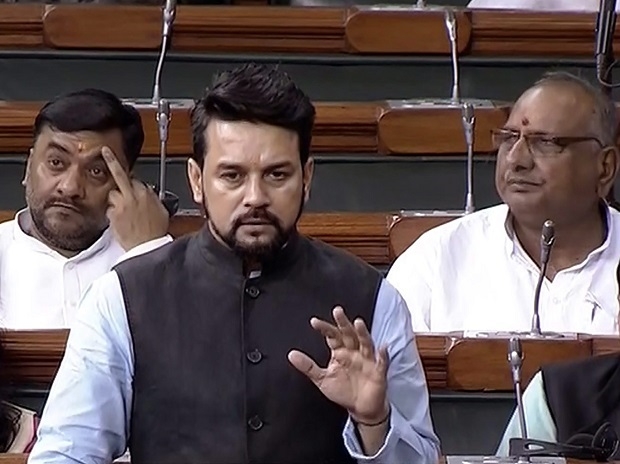Cases filed under IBC reach 1821; 'Development to reduce the number is in consideration', says Anurag Thakur
19 Nov 2019 09:39:21
New Delhi, November 19: In the concerned state of Indian economy, the data released by the NCLT have revealed that the total number of cases filed by homebuyers against the builders since June, 2018 under the Insolvency and Bankruptcy Code (IBC) 2016 was 1821 and that they were pending in NCLT as on September end.
"Data regarding cases filed against builders for defaults of less than a month is not available with NCLT", stated Anurag Singh Thakur, MoSF in a written reply to a question in Lok sabha.

Elaborating further, Thakur said that the matter of the status of homebuyers as financial creditors or modify the definition of default in these cases in order to reduce the number of insolvency cases filed against builders in the NCLTs for small defaults was under consideration of the Ministry of Corporate Affairs.
The Government is taking all steps to strengthen the NCLT in terms of number of benches, number of courts and number of members, to reduce the burden of the NCLT. Five new benches have been announced during 2018-2019 at Jaipur, Cuttack, Kochi, Indore and Amaravati. The Government has also appointed 28 more members in NCLT recently and vacant posts of members in NCLT are being filed up regularly. For capacity building of members, regular colloquiums are being held. e-Court project is also being implemented by NIC for all the benches of NCLT.
Ahead of the Winter Session, that is the last one in 2019 and is the 250th Rajya Sabha session, Prime Minister Narendra Modi on Monday said that the Parliament wants frank discussions on all matter. "It is important that there should be quality debates, there should be dialogues and discussions, everyone should contribute to enrich the discussions in the Parliament", he said.
The previous session of Parliament created a record for maximum Bills passed in the last 67 years. During the session, the Lok Sabha worked for 281 hours, or 135 percent of the scheduled hours. This figure is higher than any other session in the past 20 years. The Centre had extended the session in order to complete the legislative business. The Rajya Sabha also saw high productivity, at 100 percent.
